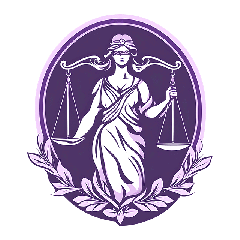Article III,
Section 4. No law shall be passed abridging the freedom of speech, of expression and of the press, and the right of the people to peaceably assemble and petition the government for redress of grievances.
While freedom of speech is one of the guaranteed rights under the law. This is not an absolute power that one can wield. The government gives tolerance over our speeches and expressions but this can be subject to prior restraint and such speech or expression is therefore considered unprotected.
What are some of the unprotected speeches:
- libelous remarks
- inciting to sedition
- defamatory statements
Thus, even freedom of speech, although a fundamental right may be limited.
Depending on the kind of speech, a right is being expressed:
There are different kinds of freedom of speech, such as political, religious, social, or commercial.
Belief or Religious Freedom in relation to Freedom of Speech
The free exercise of religion is found under the free exercise clause, that there is freedom of conscience, belief, and religion. This is a fundamental right which falls under Section 1 (life and liberty) and Section 5 under the safeguards of free exercise of religion, of the Bill of rights.
Two Concepts
-
- Right to believe
- absolute
- Right to Act on such belief
- can be limited by the state in the exercise of police power
- limited in clear and present danger of a substantive evil which necessitates the state to prohibit (compelling state interest) – thus, if there is no compelling reason, it cannot be limited
- must use least restrictive means – scrutiny test – otherwise, prohibition is unconstitutional
- Right to believe
Benevolent Neutrality Doctrine
Benevolent neutrality recognizes that government must pursue its secular goals and interests but at the same time strives to uphold religious liberty to the greatest extent possible within flexible constitutional limits. Thus, although the morality contemplated by laws is secular, benevolent neutrality could allow for accommodation of morality based on religion, provided it does not offend compelling state interests.
Limitations on Free Speech
A. Intellectual Property Right
-
- Copyright – the statutory protection for an artist or writer giving the creator the right to regulate publication of his works, multiplication of the use of his works which is copyrighted for a specific period.
- Infringement – where it infringes the right of a private domain owned and occupied by the copyright owner
- Plagiarism – the representation of another author’s language, thoughts, expression, or ideas incorporating it to his own work and claiming it as his own without the consent of the original author.
- Fair Use – a legal doctrine that permits for a limited purpose the use of a copyrighted material unless permission is acquired from the copyright holder.
B. Fair Administration of Justice – This is where limitations under press freedom may fall from state and public interest
-
- Contempt – A liability when press freedom obstructs the fair administration of justice (case in point: Lorraine Badoy Case)
- Fair Comment – privileged communication to criticize and comment on matters of public interest without being liable for defamation or libel provided that the comment is an honest expression of opinion and free of malice. (republic Real Estate Corp., vs. Jimenez-David; GR 134677, 19 Jun 2001).
- Prejudicial Publicity – A violation of procedural due process in judicial proceedings where adverse publicity influenced the court’s decision. To warrant a finding of prejudicial publicity, there must be allegation and proof that the judge has been influenced not simply that they might be influenced, by the barrage of publicity
C. Academic Freedom – Universities have freedom to determine for itself on academic grounds:
-
- Who may teach
- What to teach
- How it shall be taught
- Who may be admitted – This freedom of who may be admitted includes the freedom to exclude.
D. Fair Conduct of Elections
E. National Security
F. Offending Religious Feelings
Article 133 of the Revised Penal Code punishes “anyone who, in a place devoted to religious worship or during the celebration of any religious ceremony, shall perform acts notoriously offensive to the feelings of the faithful.
Elements:
(1) That the facts complained of were performed in a place devoted to religious worship or during the celebration of any religious ceremony;
(2) that the said act or acts must be notoriously offensive to the feelings of the faithful.
